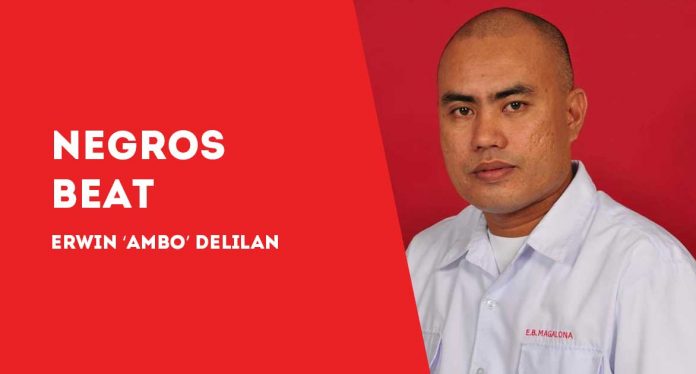
ON JUNE 30, a dialysis center in La Carlota City, Negros Occidental ceased operations.
At first, the news seemed routine. Gov. Bong Lacson even reassured the public in a press conference that the provincial government would immediately take over the center’s operations.
But a deeper look into the issue uncovered a quiet but troubling controversy — one that spiraled into an unforeseen crisis affecting over a hundred hemodialysis patients, not just in La Carlota, but throughout southern Negros Occidental. This includes the 18 towns and cities under the 4th, 5th, and 6th congressional districts.
At the root of the issue: a staggering ₱58,876,550 unpaid obligation by the provincial government to Nephroprime Corporation.
Nephroprime is a group of nephrologists based in Bacolod City and Negros Occidental who established the dialysis center in La Carlota with a noble goal — to provide easier access to life-saving treatment for hemodialysis patients in southern Negros.
Operations began in 2017 under a Memorandum of Agreement (MOA) involving three parties: the provincial government and the La Carlota city government as the First and Second Parties, and Nephroprime as the Third.
Why the need for a MOA? Because Nephroprime operated within a space inside the provincial government-run Don Salvador Benedicto Memorial District Hospital (DSBMDH) in La Carlota.
Under the agreement, Nephroprime would provide the medical equipment, supplies, and trained personnel to manage the dialysis center.
The group initially poured in over ₱14 million in seed investment.
The MOA had a lifespan of 12 years — legally binding until 2029.
The Miscellaneous Agreement
A copy of the MOA, shared with this writer, reveals a “miscellaneous agreement” clause. Under this, the standard rate for each dialysis session — whether the patient is PhilHealth-insured or not — was pegged at no less than ₱2,600. All payments were to be channeled through the provincial treasurer’s office.
The monthly gross income was to be divided as follows:
* ₱500 for professional fees
* ₱1,200 for supplies, reagents, and medicines
* ₱200 for dialyzers
* ₱150 for machine maintenance
* ₱550 as net income
That net income would then be split: 60% for Nephroprime, and 40% for the provincial government.
The terms were clear.
But beginning July 1, 2024, the relationship between the Capitol and Nephroprime reportedly soured.
Nephroprime began demanding payment for its accumulated 60% share of the net income — amounting to ₱58,876,550.
The Demand for Payment
A series of communications between Nephroprime and the provincial government, covering July 1, 2024 to June 30, 2025, shows that the medical group persistently reminded Capitol of the unpaid dues.
What stood out was a letter dated May 28, 2025 — Nephroprime’s official notice of cessation of operations addressed to Governor Lacson, then-Vice Governor Jeffrey Ferrer, Provincial Administrator Rayfrando Diaz, and Chief of Hospitals Dr. Ma. Girlie Pinongan.
In the letter, Nephroprime cited severe financial losses as the key reason for their decision to close shop.
Several meetings reportedly followed.
On June 16, Governor Lacson formally responded: “In view of your formal notice and overt act to cease operations, the Provincial Government of Negros Occidental will accede to your decision and will undertake the necessary steps to take over the operations of the DSBMDH dialysis unit in order to ensure uninterrupted dialysis services to the Negrense.”
Lacson also committed to settling all valid and verified Statements of Account (SOAs) submitted by Nephroprime, subject to standard government accounting and auditing procedures.
Another Demand Letter
Eight days later, on June 24, Nephroprime president Dr. Ma. Leila Magbanua wrote back to Governor Lacson, once again stressing that their closure stemmed from the government’s failure to settle its obligations.
“We would like to emphasize that we have faithfully complied with our obligations under the MOA, including provision of all medical supplies, emergency medicines and medical equipment as required by PhilHealth. But to date (June 24), we have not been paid the amounts due,” Dr. Magbanua wrote.
Capitol remained silent.
So, on June 30, Nephroprime shut down the facility.
Patients in Limbo
Since then, 130 dialysis patients have been left in limbo. Their options? Travel to Bacolod City, which has several private dialysis centers. Or journey northward to Silay or Cadiz City, where public dialysis services are cheaper. But La Carlota is 60.4 kilometers from Silay and 91.9 kilometers from Cadiz.
What if you live in Hinoba-an — the southernmost town in the province?
During a July 7 press conference, Governor Lacson offered assistance. Capitol is willing to provide free transportation to ferry patients to Silay and Cadiz.
But what about the hassle and exhaustion of hours-long travel?
Is that truly a solution? Can the provincial government not feel the burden on these patients?
Medical Etiquette Matters
Capitol claims it is ready to take over operations of the dialysis center at DSBMDH. In terms of equipment and manpower, they say they’re prepared.
But why, then, has there been no transition since June 30 — especially when the notice of cessation was served over a month before closure?
My research pointed to one key issue: the provincial government failed to secure the services of Nephroprime’s renal technician and registered hemodialysis head nurse. Despite attractive offers, both refused. Why?
A respected doctor in Bacolod (who requested anonymity) said Capitol overlooked a vital principle in the medical profession: medical etiquette.
Even if a facility shuts down, it doesn’t mean you can simply pull in another medical team to replace the old one. It doesn’t work that way. Medical etiquette governs the relationships among professionals — ensuring respect, proper communication, and professional boundaries, especially in matters involving patients.
Breach of Contract
Nephroprime is now gearing up to file a criminal case for breach of contract against the provincial government. For them, Capitol’s failure to release their 60% share is more than just a delay — it’s a contract violation that forced them to close.
In the meantime, the governor is seeking two more weeks to resolve the issue, possibly with a new contractor. We’ll see.
Pain and Hassle
One key question: why did Capitol delay Nephroprime’s payment? The MOA — signed during the administration of the late Governor Alfredo Marañon Jr. — remains binding. Governor Lacson has no choice but to honor it.
So why the delay? Is the Capitol bankrupt? Definitely not.
So, what gives? Is it political? Maybe yes, maybe no. Oops. Abangan!
But the most piercing statement came from a dialysis patient in La Carlota: “Huol ni sa amon! Tani, gin-ulikid man kami anay!”/PN







